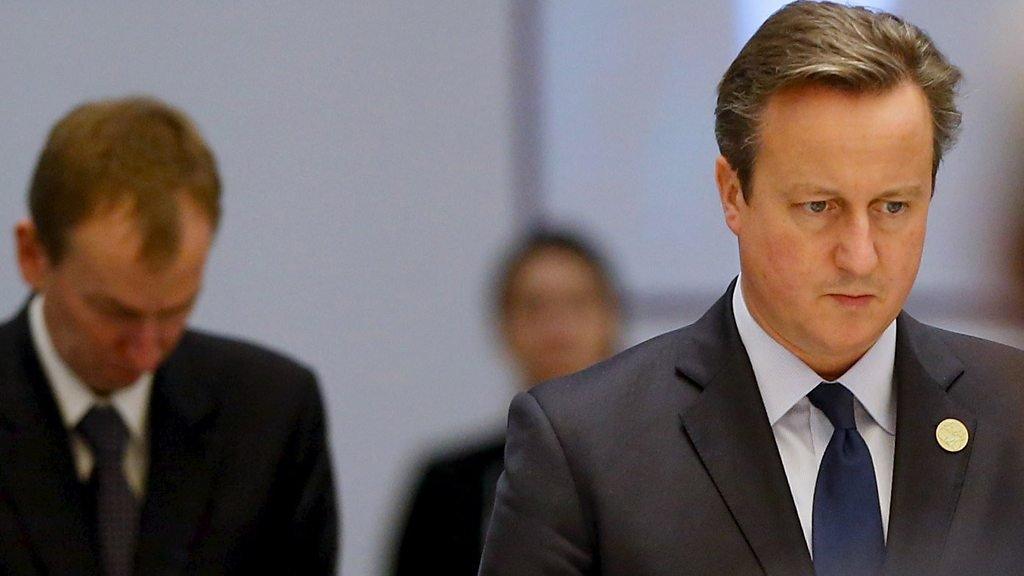Jeremy Corbyn 'not happy' with shoot-to-kill policy
- Published
Corbyn: Not happy with shoot-to-kill policy
Jeremy Corbyn says he is "not happy" with UK police or security services operating a "shoot-to-kill" policy.
In an interview three days after the Bataclan attacks in Paris, the Labour leader told the BBC such an approach could "often be counter-productive".
He also declined to answer what he called the "hypothetical question" of whether he would ever back military intervention against extremists.
"I'm not saying I would or I wouldn't," he said.
Mr Corbyn stressed the need for a political resolution to be found in Syria and repeated his criticism of previous Western interventions in the Middle East, saying they had "unleashed forces" and boosted extremists.
He also criticised cuts to police budgets.
The so-called Islamic State group has said it carried out multiple attacks in Paris in which 129 people died.
Mr Corbyn was asked by BBC political editor Laura Kuenssberg whether he would be happy to order police or the military to shoot to kill.
He said: "I'm not happy with the shoot-to-kill policy in general - I think that is quite dangerous and I think can often can be counterproductive.
"I think you have to have security that prevents people firing off weapons where you can, there are various degrees for doing things as we know.
"But the idea you end up with a war on the streets is not a good thing."

Analysis by Dominic Casciani, BBC home affairs correspondent
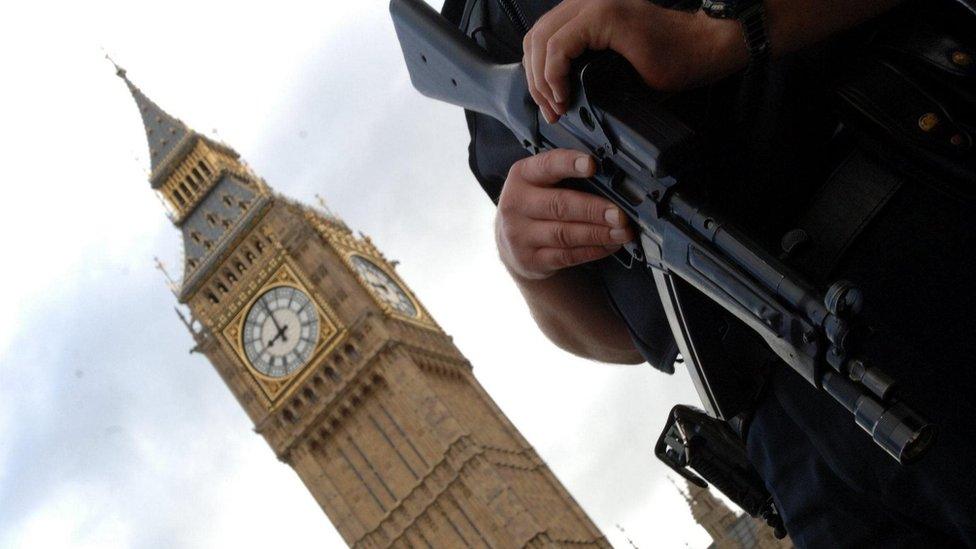
The UK's police forces do not have a blanket "shoot-to-kill" policy - but at the same time, police can be legally justified in shooting even if the attacker ends up dead.
It all comes down to the law on self-defence. The only person who is legally responsible for pulling the trigger is the police officer holding the gun.
That officer must be able to justify under the law that their action amounted to reasonable force to protect themselves or others.
That means no chief constable, let alone a minister, would be ever able to tell an armed officer how to respond to the specific scene before them.
So if the officer could show the only way to stop a bomber was to shoot them in the head, then he or she would be legally entitled to do so.

'Dangerous times'
But Mr Corbyn came under attack at a meeting of the Parliamentary Labour Party, with Labour MP John Mann saying his niece had found herself trapped in a Paris toilet for three hours "thinking she was going to be murdered".
He asked Mr Corbyn if "he was saying terrorists with Kalashnikovs should not be shot by security forces in such situations".
And Keith Vaz, the chairman of the home affairs committee, said the shoot-to-kill policy was right and the special services do need that power in extreme circumstances.
"We live in dark and dangerous times and the shoot-to-kill policy is specifically, aimed at terrorists in a hostage situation, is the right policy given the emergency situation that members of the special services will find themself in," he said.
"It is the right thing to do in those circumstances and we have given that power to those responsible to make that decision."
'Legal framework'
Asked about the prime minister's own opinion of the shoot-to-kill policy, David Cameron's official spokesman said such matters were ultimately "an operational decision for police on the ground".
He said there was a "clear legal framework" and that the police "have extensive training".
Mr Cameron wants to secure Commons backing for UK air strikes in Syria, but has said he will not call a vote until he is confident of winning it.
In the interview, Mr Corbyn said he would support "security measures" and warned of the need for any military action to comply with the law.
He said the question of whether he would ever back intervention against Islamist extremists was hypothetical, adding: "At the present time, the issue of the bombing of Syria does not seem to me to be the right way forward on this and so I don't support it at this stage."
Earlier, Mr Corbyn said renewed air strikes by French forces targeting Islamic State militants would "probably not" make a difference and condemned the "appalling" attack on the "vibrant" city of Paris.
In full: Laura Kuenssberg interview with Jeremy Corbyn
Meanwhile, Mr Cameron said he needed to "convince more people" of the need to extend the UK's air strikes against IS into Syria.
MPs voted against military intervention in Syria in 2013 when the target was President Bashar al-Assad's government.
Speaking on BBC Radio 4's Today programme, Mr Cameron said he would not hold a vote until he knew he had the support of Parliament, saying a government defeat would be "damaging" for Britain's "reputation in the world".
- Published16 November 2015
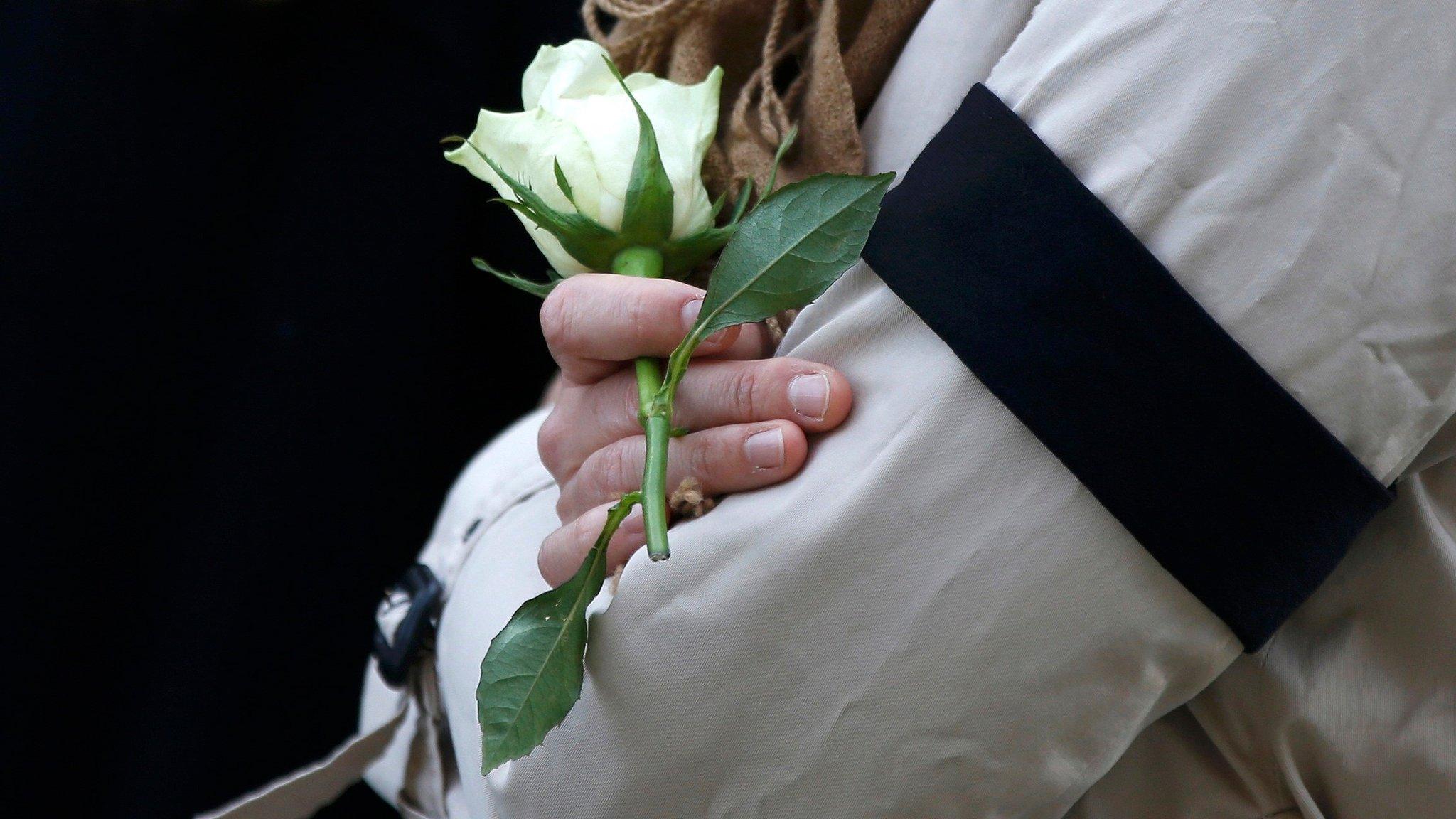
- Published16 November 2015
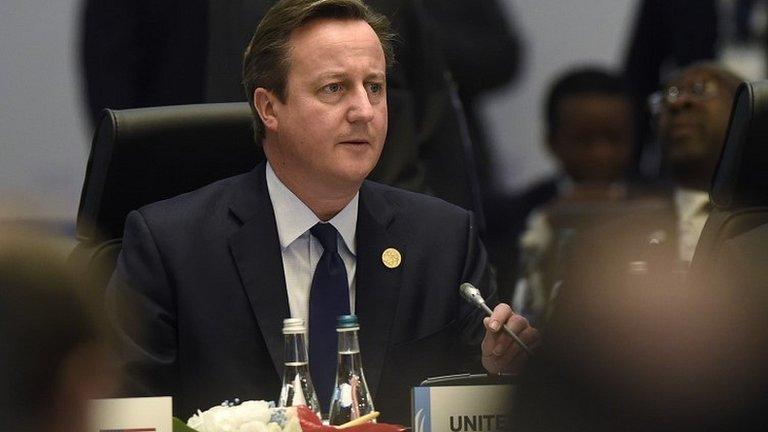
- Published15 November 2015
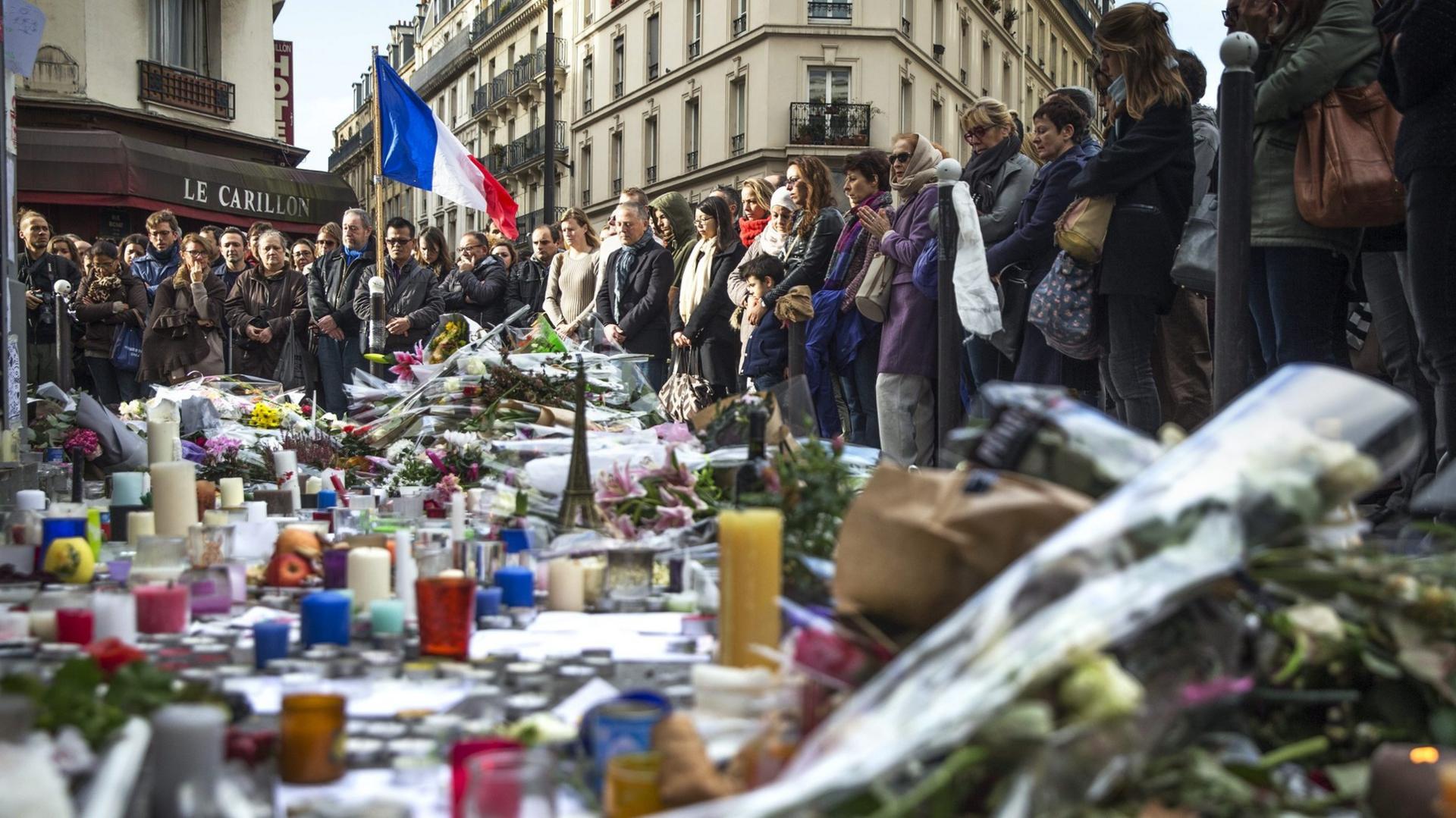
- Published16 November 2015
